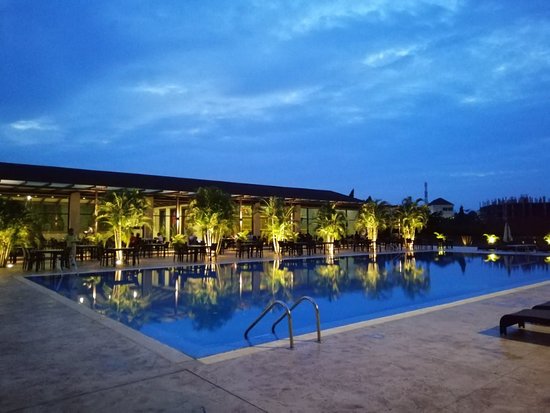Travel Guide: What is there to do and see in Abuja?

Nigeria’s capital city is Abuja. It is one of Nigeria’s best-planned and laid-out cities, having been built in the 1980s. Originally home to the Gbagyi, Bassa Gade, Ganagana, and Koro peoples, it now acts as a cultural crossroads for Nigeria’s various cultures. It manages to merge the rustic and the modern thanks to its unusual location. Abuja’s roads and transit are excellent and very inexpensive, making it one of the easiest cities to explore.
Wild Out
Abuja’s nightlife is another attraction for visitors. With a plethora of lounges, peppersoup places, and nightclubs, having a good time in the city is not a problem. One of the nicest views and ambiances in the city can be found at Skybar Rooftop Lounge. The Mashoria Arena, as well as the Caribbean Lounge and Nightclub, offer excellent beverages and music.
Take it to the Next Level at a Five-Star Restaurant

Breakfast, lunch, or dinner with friends or lovers can be had at the Blu Cabana, Jevinik (specializing in local foods), 355 Steakhouse and Lounge, Nkoyo (specializing in local dishes), Wakkis (Indian), Zuma (steakhouse), and many other restaurants.
Consume Street Food

The objective of an adventure is to learn about different cultures, and the cuisine of these cultures should not be overlooked. Abuja is a jumble of flavors and olfactory delights due to its status as a capital city. Suya must be consumed in all of its forms (chicken, beef, ram, goat, turkey) and textures (kilishi/grilled). In addition, masa, milk curd/cheese (wara), akara, and other Nigerian delicacies are available in several cafeterias throughout the city.
Alternatively, take a stroll through a shopping mall’s cool interior

In Abuja, there are numerous shopping complexes where you won’t have to deal with crowds or irate shopkeepers. Ceddi Plaza, Jabi Lake Mall, Park ‘n’ Shop, and others are among the most popular.
Purchase or window shop art

Apart from the arts that can be bought in market areas, there are various art galleries with well-curated sculptures, installations, and paintings. Nigeria is huge, and so are the multitudes of artworks that may be seen and purchased. Nike Art Gallery, Thought Pyramid Art Centre, and Omega Gallery are just a few of the Abuja-based galleries.
The name Bwari Pottery Village suggests that it is dedicated to the craft of pottery manufacture. You may observe potters at work, browse the many departments, and purchase pitchers, casserole plates, or teapots. A visit to the Abuja Art and Craft Village is also recommended.
Visit an open market to do some shopping
The Utako Market is the busiest and most popular; it is also a farmers market where you can buy fresh fruits and vegetables for a low price. Garki Model Market, on the other hand, is the least congested due to its well-designed layout and stricter regulation. Then there is the Wuse Market, which is the most popular, and the Garki International Market, which is somewhat larger than Wuse Market and where you can buy garments and confectioneries. Fresh water fish and delicious fruits may be found in Kado Fish Market.
Rock Climbing is a must-do activity

Climb Aso Rock, which is close behind the presidential villa and provides a spectacular view of the surrounding landscape (the presidential residence is named after the rock). You can also visit the mythical Zuma Rock, a 725-meter (2,379-foot) monolith that the Koro people believe is the home of the deceased spirits (original occupants of the rock).
Unwind in a Park
Manfredi Nicoletti built Millenium Park, which is one of the city’s largest and most attractively planned out parks. Julius Berger Waterfront Park, Eden Parks and Garden, Area 1 Recreational Garden, and many others are among them. At these parks, you can workout, ride a bike, play football, or simply relax and people watch.
National Monuments should be visited
The Abuja National Mosque, which was erected in 1984 by Lodigiani Nigeria and designed by AIM Consultants, is one example of spectacular architecture in Abuja. The mosque is available to the public except during prayer times and is an explorer’s joy.
The National Christian Centre, with its neo-gothic architecture, is another architectural landmark that will appeal to visitors. The National Library, the Ministry of Defence (constructed in the shape of a ship), the ECOWAS Secretariat, and many others are among them.
Related: 6 Best beaches in Lagos
